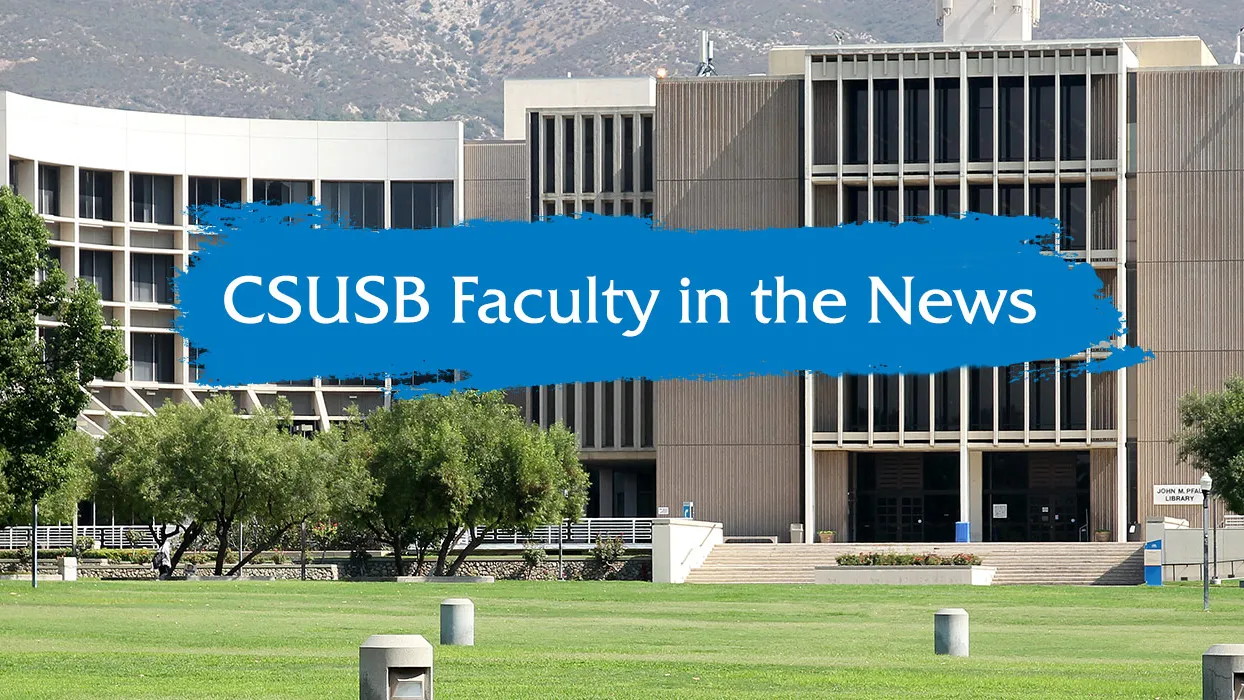NOTE: Faculty, if you are interviewed and quoted by news media, or if your work has been cited, and you have an online link to the article or video, please let us know. Contact us at news@csusb.edu.
Conspiracy theories are key components in online radicalization recruitment, says CSUSB professor
PolitiFact
March 31, 2022
A recent terrorism bulletin from the federal government warned that false information about election fraud and COVID-19 is contributing to a heightened threat of domestic extremist attacks. Some are using that February document to falsely claim that President Joe Biden is trying to criminalize free speech.
The Department of Homeland Security under President Biden has warned in a terrorism bulletin repeatedly about the dangers of false narratives and conspiracy theories.
Brian Levin, director of the Center for the Study of Hate and Extremism at CSUSB, said it’s a mischaracterization to say the DHS report seeks to criminalize free speech. He said the document accurately summarizes the “consensus of trends observed within the extremism monitoring profession.”
Levin said that conspiracy theories and false narratives are key components in online radicalization recruitment.
Levin said only a fraction of today’s conspiracy theories represent a direct threat, but the spread and acceptance of misinformation can impact “small informal cells and idiosyncratic loners,” both here and abroad.
Levin pointed to violent incidents in 2021, including one where a Maryland man was accused of killing his pharmacist brother over COVID-19 vaccines that he thought the government was using to poison people.
Read the whole article at "Terrorism bulletin not attempt to criminalize free speech, despite claim."
CSUSB provides access for all during pandemic
Diverse: Issues in Higher Education
March 31, 2022
The pandemic has brought all students challenges, but none more than students with disabilities. The need for services has accelerated since the onset of the pandemic as students with disabilities face additional challenges in attaining educational success.
Marci Daniels, director of Services to Students with Disabilities (SSD) and WorkAbility IV at Cal State San Bernardino, says at CSUSB it took a combined effort from faculty, staff, and student assistants to create a comprehensive strategy that enabled operations to move to the new learning environments. They had to ensure that remote environments were accessible and were able to train students, faculty, sign language interpreters and captionists on software platforms such as Zoom. Assistive technology was provided to students as needed. Faculty had to know how to work with the features essential to students with disabilities.
“The [training] efforts reduced resistance to change through open communication,” says Daniels. “Our deaf students’ GPA[s] actually increased.”
Read the whole article at "Access for All."
These news clips and others may be viewed at “In the Headlines.”
